Free digital copy
Get Speciality Food magazine delivered to your inbox FREE
Get your free copy
Ten miles from Canterbury, perched on the edge of Faversham (an important creek town, which once jostled with traders from the surrounding area and Europe, transporting their wares up to London), is the hamlet of Macknade – which gives its name to one of Kent’s leading food halls.
The evolution of Macknade, today operated by Stefano Cuomo and his management team, is both romantic, and inspirational. A story that reaches from the almond and olive groves of the Italian island of Ischia, to the cherry orchards and hop yards of the Garden of England.
Stefano’s family have been farming the Macknade land since the mid-1800s. It’s always been a productive, ever-changing dynamic. The family operated petrol stations 60 to 70 years ago. They were some of the first pioneers to print their farm name on trugs of produce delivered to London. They sold direct, as many others did, from the side of the road.
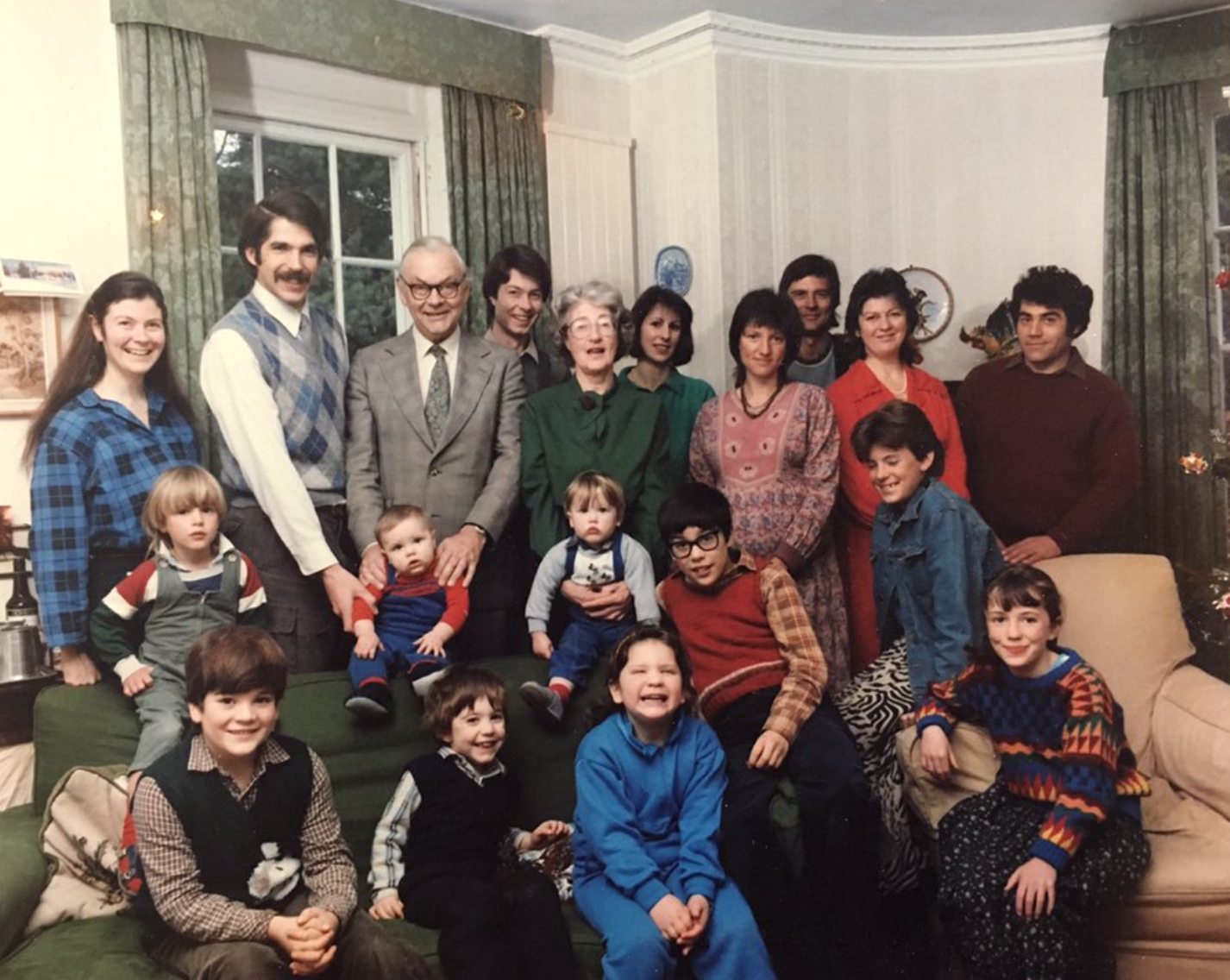
Where the story takes a twist from traditional agriculture is in the late 70s, when Stefano’s mother Patricia, working in Italy as an au pair, met his father, Renato. The pair bonded. Over good food and wine. Her farming background. And his industrious nature, having grown up in a place where self-sufficiency wasn’t some rural idyll inspired by a TV show, but a part of everyday life.
Returning to Patricia’s family farm, Renato found himself inspired to ‘get stuck in’, training in horticulture at Hadlow College and, in 1979, carving out his own niche, taking 20 acres of land adjacent to the main commercial operation, and springing forth a market garden. One ripe with possibilities. While it might have been apples or grain being grown up the road, Renato busied himself bringing more unusual, exotic (then) produce to customers, be it plump, bruise-coloured aubergines, or shallots.
“They were seeing a lot of farm diversification at the time,” says Stefano. “This was a generation (my father was in his early 20s then), that was wanted to try something new, often looking at the American culture, where pick your own was growing at a pace. At the same time, we were starting to see this tradition of high-end chefs coming out of London and setting up restaurants, looking for great produce.”
Renato would meet their demands, growing what they needed, little and often, and selling direct from a farm shack.
“That was 1979, the year I was born. My father very much just cracked on with it all and my mother supported him as was traditional in those days. She’d do the accounts, while he was out in the fields.”
It was hard to make a living as they edged into the 80s, with a loss of interest in British farming at an alarming scale across the UK, and increased reliance from retailers on foreign imports.
“There was a kind of shift in society,” Stefano continues, “all around how people were engaging with produce. My parents decided to grow the pick your own side of the business, looking as well as small scale producers and providing an outlet for them, while starting to source from other growers in the area.”
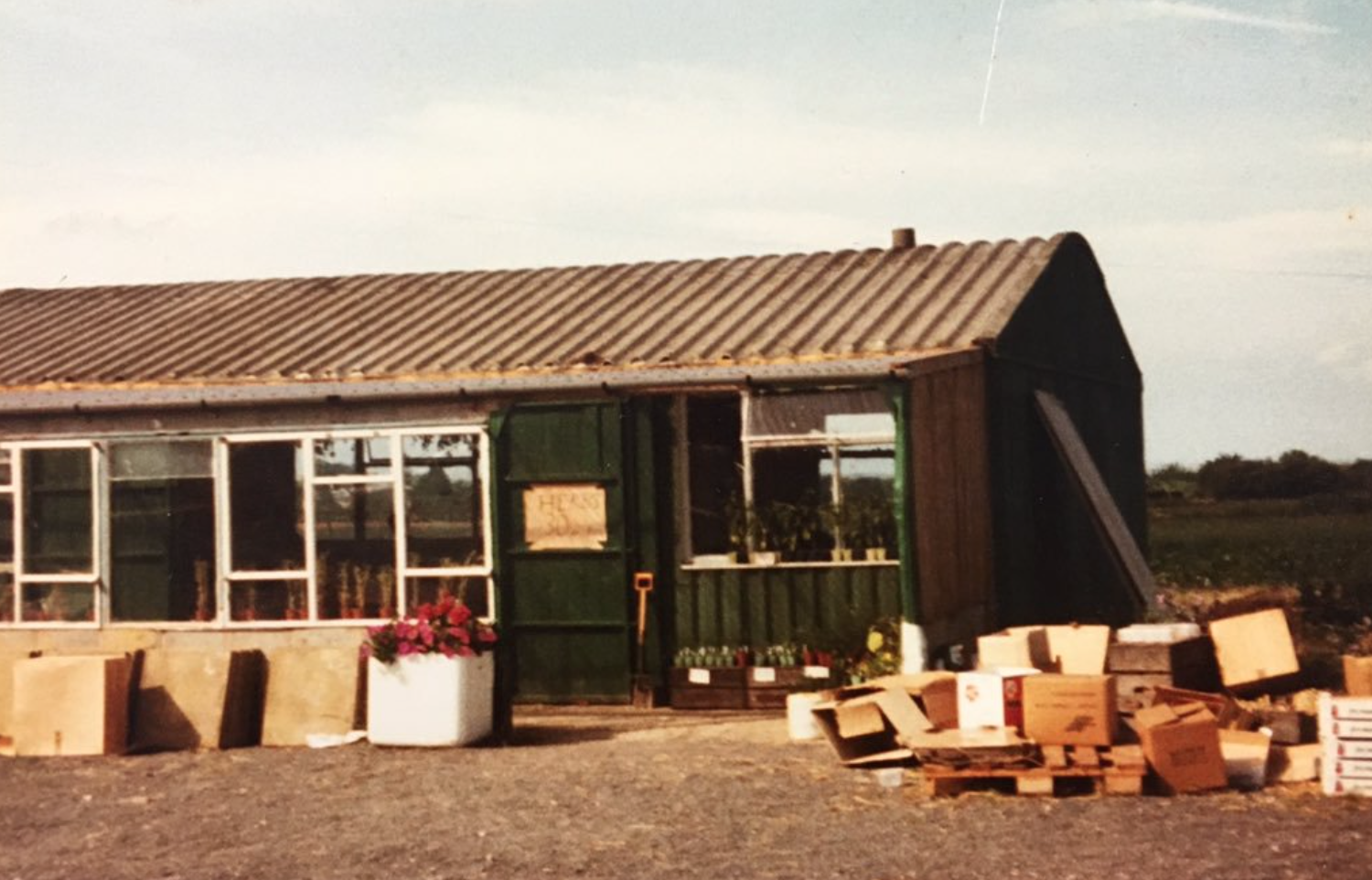
As is the case with most diversification projects, there wasn’t any defined plan at the beginning of this new era for Macknade. “They just had this absolute love for produce and for Kent and for the land, and community. All of these things are, I think, what makes agricultural businesses so important,” Stefano urges.
“In regions like ours, so many people are touched by them. They know the name of the business, or have seen a signpost for them, or have an attachment to the farms after seeing the machinery out at cropping times. They’ve been a core part of many landscapes and areas for a long time.”
Growing up on the farm, running around the land with his brother and sister, enjoying picnics amongst the cherry trees, Stefano says he has a deeply felt affection for farming and rural life…but also for family, and his strongly held values run through the offering of the business today. “I grew up recognising that family businesses should be a hub to support the next generation, but also the wider community.”
The core of Macknade as a food hall grew during the 90s, when it exploded onto a burgeoning farm shop scene. Though it wasn’t as easy as putting up a few shelves, loading them with jars of jam and welcoming shoppers through the door. “Planning officers didn’t understand then the difference between the kind of quality produce we wanted to sell, and generic retail outlets. It would have been really frustrating for my parents,” Stefeno says.
Fortunately (and in part thanks to a prominent position close to an A road) success would follow Patricia and Renato in their bold new vision. “At the turn of the Millennium we stopped farming altogether,” says Stefano, adding that the finances no longer made sense. “My grandfather was retiring, and the retail side of things were growing, we were cash generative, which certainly wasn’t the case with agriculture.”
Stefano joined the business in the early noughties, excitedly travelling Europe to find produce that aligned with the shop’s ethos for absolute deliciousness and quality, though it took a bit of convincing to get his father on board with some of his ideas. “He got frustrated by farmers’ markets and farm shops not run by farmers. I had to tell him it was more about what we were growing as a business, and how we could differentiate. At that time we also saw the growth of wholesalers, and brands like Cottage Delight were quite small and coming through. There was a lot going on.”
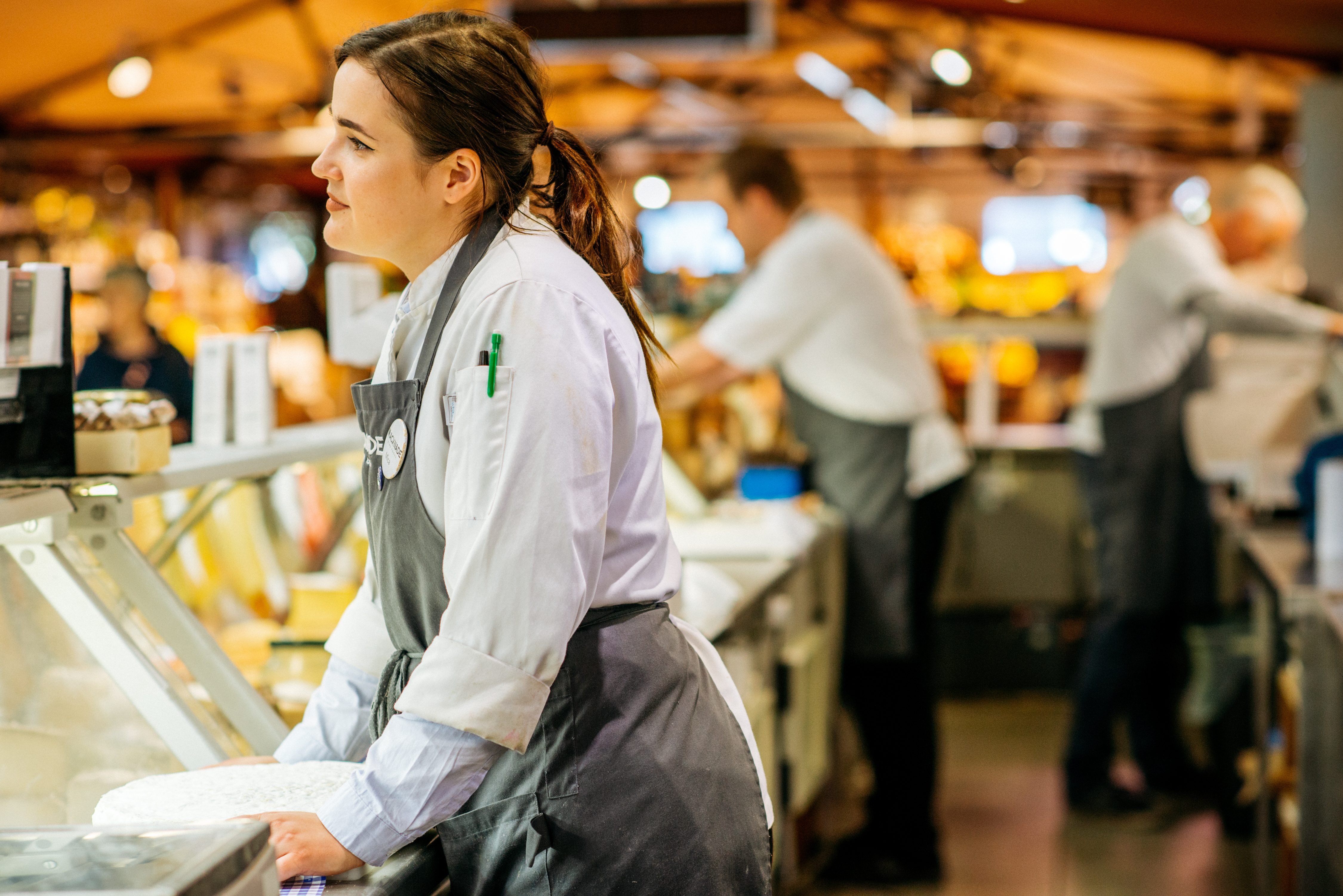
The most important thing about joining a family business, he says, is working out where you personally fit. Where you can add value. “I realised very early on that my parents had unwittingly crated this amazing lifestyle brand in Macknade. People had an emotional attachment to it. I saw a brilliant opportunity to build on that further, and part of that involved us moving to being a mission-focused business that, at its core, was about bringing the community together to enjoy incredible food and drink.”
To make a mission thrive, you need strategy, vision, and a plan. Stefano’s next big step, having upped the ante, opening a new deli and cafe, was to get in professionals. People who didn’t have “an emotional attachment” to Macknade.
“Heritage businesses are lucky. They have the base asset of the land and building, which reduces a lot of stress, but to grow, you have to allow other people to come in. In 2012 we made the huge step to become a limited company, taking on a general manager. It’s a real shift, going from being family-owned to a partnership, but having that structure and professional model allows for so much more flexibility and change.
“Before, mum used to do the accounts. Now we have a financial controller. I brought in Shane Godwin as managing director in 2017/18. Our marketing lead Rosie has become marketing director.”
Despite moving into a limited company set up, those core values of Macknade remain unchanged. “We’re not just about profitability and shareholders. People need to feel they’re actually part of what we’re doing, whether they work within the business, or come to us as customers,” Stefano explains.
“If you look back 40 years ago, in communities people would congregate around the church. They’d see each other for five minutes, or half an hour and build those social connections. Now, with secularisation, a lot of those meetings are taking place in the supermarket. While people are doing shopping on a Sunday, they’ll catch up over their trollies. If you’re purely operating from an approach of satisfying shareholders, you lose that joy from the shopping experience.” Privately owned SMEs such as Macknade, Stefano says, create meaningful, stable jobs, and places where communities can be built…where customers and staff can build relationships. “We’ve got customers who’ve been shopping with us since before I was alive,” he laughs. “They’ve watched me grow up. That’s part of the magic of the independent shopping experience. Personalisation. Knowing who your customers are.”
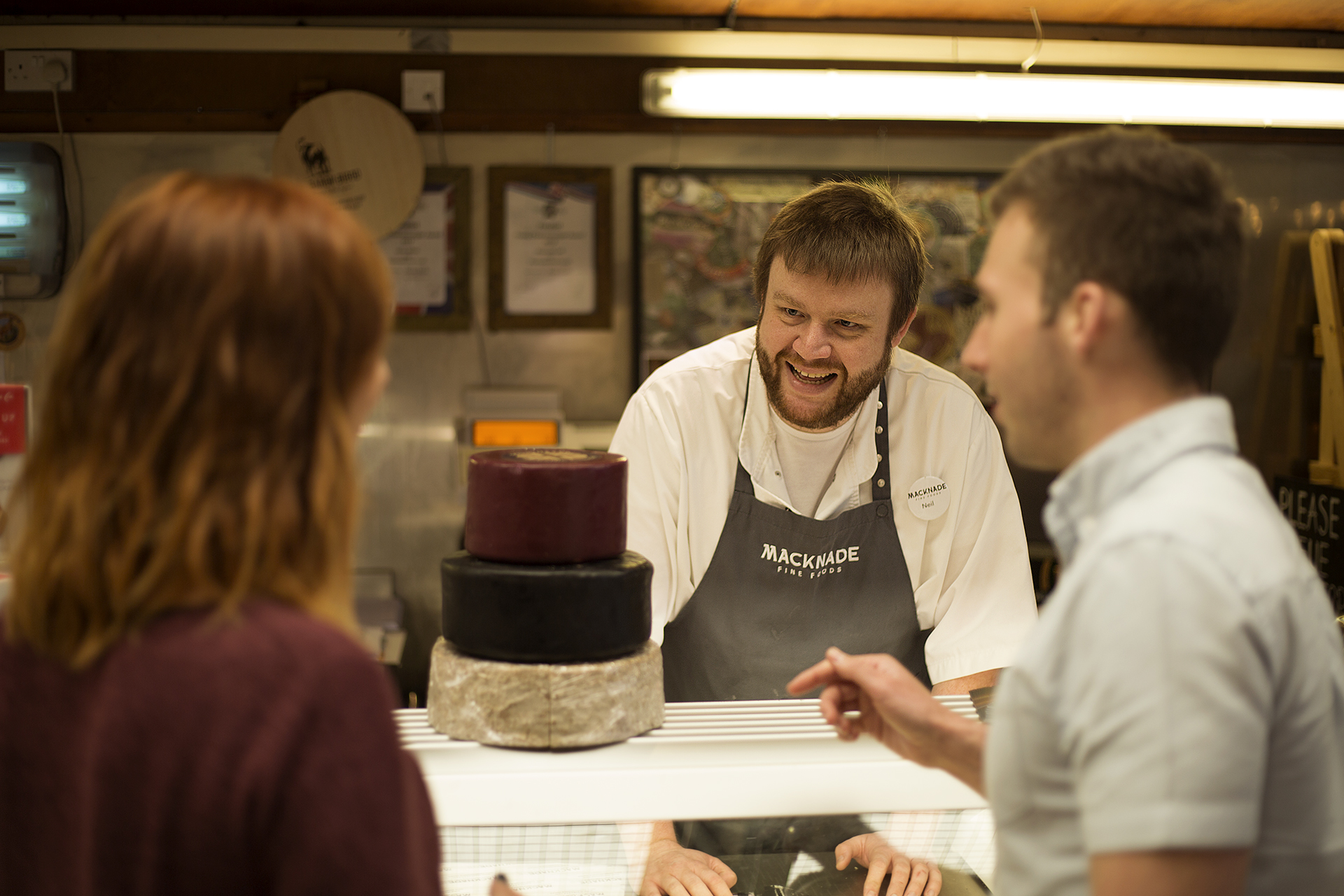
Alongside relationship building, a core value at Macknade is truly caring for the environment, but on this Stefano is realistic, saying Rome wasn’t built in a day. “As an SME we’re not going to solve the climate crisis by ourselves within a week, a month or even six months, but we can make strategic decisions that take us closer to our objectives. Whether that’s looking more closely at the producers we choose to work with, at packaging, the way our site operates…even giving consumers reference points, such as understanding the difference between beef finished on grass, compared to soy. I genuinely think in small, incremental ways, we can be better, and we can help others be better in the way they eat and shop.”
There are two sides to innovation, says Stefano. One is getting in cool new ‘big ticket’ items, and expanding, perhaps your food and beverage options. The other is to act as almost a conduit between consumers and producers, platforming emerging brands. “More and more, rather than having wholesalers in for sampling, we’re looking at businesses that might not be quite ready to come onto the shelves yet, but that could come and do some consumer testing with us in the form of pop-ups,” he explains. “That way we can build dynamic relationships, and create an experience for shoppers, who are able to try something no one else has access to yet.”
Anything ‘new’ has to push the business forward. For Stefano, futureproofing means regularly looking at trends emerging in the food and drink sphere, from wellbeing and the environment, to the economy. “One thing we’re seeing at the moment,” he reveals, “is younger people are unable to have big ticket items like a house, they’re not affordable, but they’re valuing experience and good food, and that might be where they spend their money. We need to nurture them.” However, this shouldn’t be to the detriment of existing, loyal customers. “Baby Boomers and ‘the grey pound’ continue to be important to businesses like ours. They are time-rich. They have more disposable income. We need to be more holistic, I think, taking the experiences of all age groups into consideration. A lot of the same values are shared across demographics. If you’re delivering an experience, and people feel it’s personalised and you’re proactive, it doesn’t matter if they’re 25 or 75.”
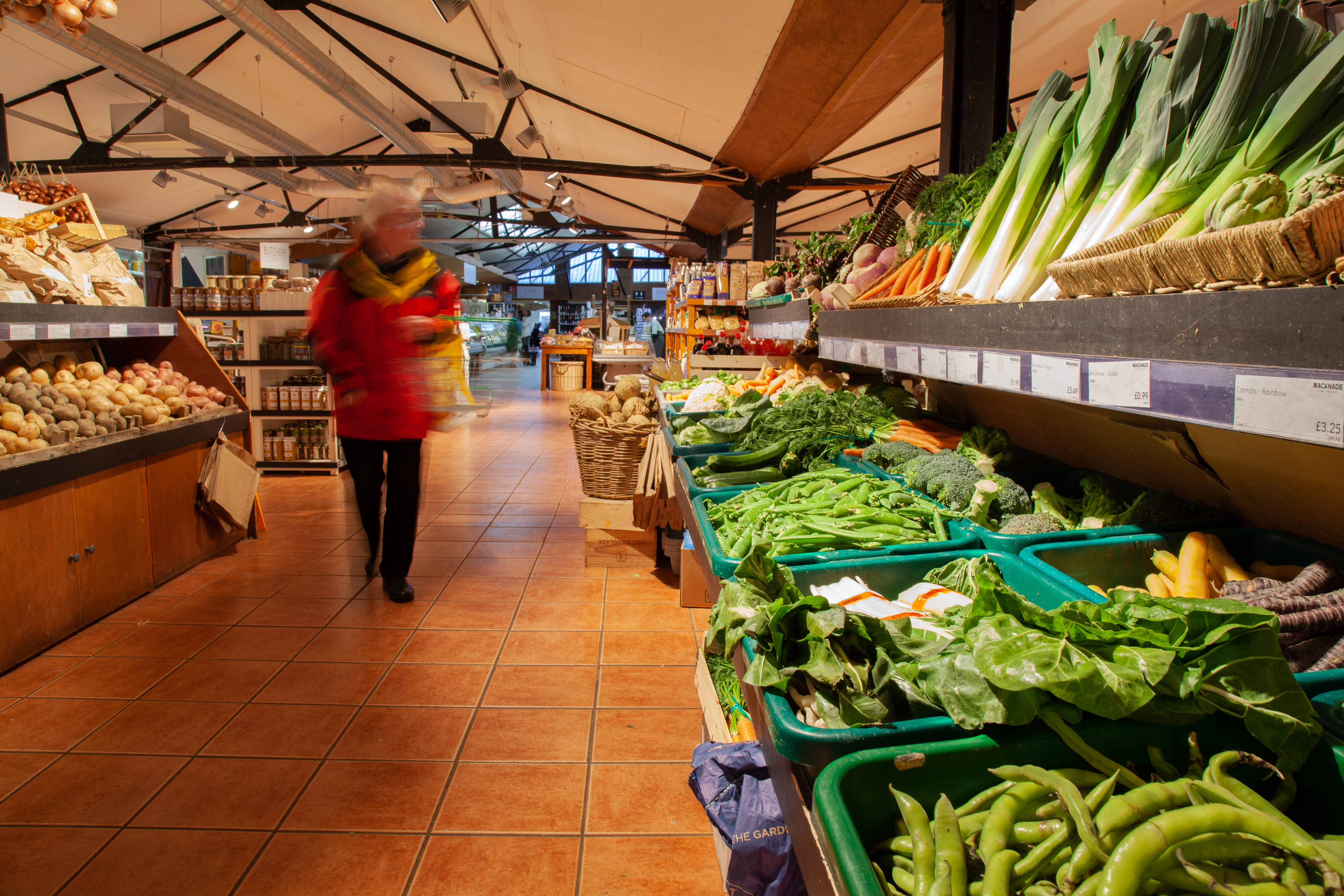
‘Sincerity’ is another thing Stefano thinks will keep food halls, delis and farm shops thriving into the future. “It’s at the heart of everything, absolutely! It’s that element of, cash can buy an experience, when it comes to the big boys, but it can’t buy sincerity - recognising people, acknowledging them, remembering what they like, making recommendations you know they’ll enjoy.”
Knowledge is a speciality retail power too. During tricky economic times, we tend to shift our priorities when it comes to treating ourselves. Rather than an expensive weekend away, or a night at a fancy restaurant, Stefano says we’re buying better quality cheese, for example, “and wanting to know more about where it’s from, who made it and what wine to pair it with”.
Finally, the ‘whole basket shop’ can be a dealbreaker. And as more, and younger, shoppers tune into what artisan stores have to offer, these retailers must have the bandwidth to meet their demands for not only experience and quality, but time, making sure all the essentials are readily available, from bread and milk to flour and sugar.
“People have to want to do their grocery shop with us. It’s not enough for them to use us as a lovely place for breakfast at the weekend. We want them to come and buy Kentish-grown apples, or local beans. To make this work more efficiently and affordably in the future, those in the industry need to take a long hard look at margins and supply chains and longer term strategies.” Owners like himself are, says Stefano, in a position now to make an impact that will be felt in 10, 20 or even 30 years’ time.
“We have a generation now,” he explains, “of business owners who have 20 years behind them, and 20 more ahead. And some family members are coming out of farm retail businesses, opening up more opportunities. It’s a massively dynamic time.”